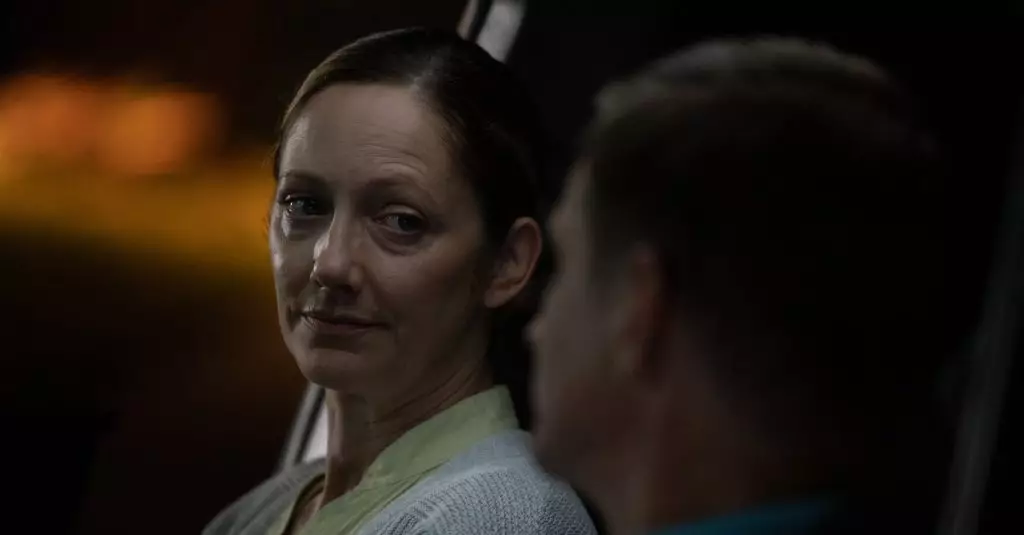With the scheduled release of “Eric Larue” on April 4, Michael Shannon, celebrated for his powerful performances in front of the camera, steps into the director’s chair for the first time. This poignant drama, based on Brett Neveu’s 2002 play, weaves a narrative that navigates the complex emotions surrounding a devastating act of violence. It tells the story of two parents grappling with the aftermath of their son’s heinous actions, which lead them down divergent paths in their search for solace.
The film revolves around Janice, portrayed by Judy Greer, who is left to bear the emotional weight of her son’s tragic crime, where he tragically murders three of his classmates. The impact of this event casts a long shadow over her life, leading to a profound disconnection from her faith and spirituality. Greer’s character embodies the struggle of a mother torn apart by grief, anger, and an overwhelming sense of guilt. In contrast, her husband, played by Alexander Skarsgård, retreats into a new religious community, showcasing how grief can fracture familial bonds in unanticipated ways. Their opposing approaches to faith and healing paint a vivid picture of a couple ensnared in tragedy.
The ensemble cast is one of the film’s prominent strengths, featuring illustrious actors such as Alison Pill, Tracy Letts, and Paul Sparks. Each character brings their own perspectives and layers to the haunting story, enhancing the narrative’s emotional gravity. As the film progresses, viewers will witness the differing coping mechanisms of the characters—each striving to find meaning or healing in the wake of incomprehensible loss. The film raises critical questions about how individuals process pain and the ways in which community and faith can either bridge or widen the chasm between us.
Shannon has expressed that “Eric Larue” delves into the pressing issue of gun violence, a topic that resonates deeply in today’s society. By examining the repercussions of such tragedies, he invites audiences to reflect on the broader implications of these events on personal and collective levels. Shannon’s desire to use his platform to spark discussion around these vital themes indicates a purposeful narrative intent, aiming not just to tell a story, but to contribute to the ongoing dialogue regarding violence, grief, and the search for redemption.
As “Eric Larue” prepares for its debut, it stands as a testament to Shannon’s artistic vision, merging potent storytelling with critical social commentary. With its intricate exploration of faith, grief, and the human condition, the film promises not only to resonate with audiences but also to leave an indelible mark on the conversation surrounding gun violence in America. As we approach its release, anticipation builds for a cinematic experience that seeks to heal and understand—a reflection of the challenges facing many today.

